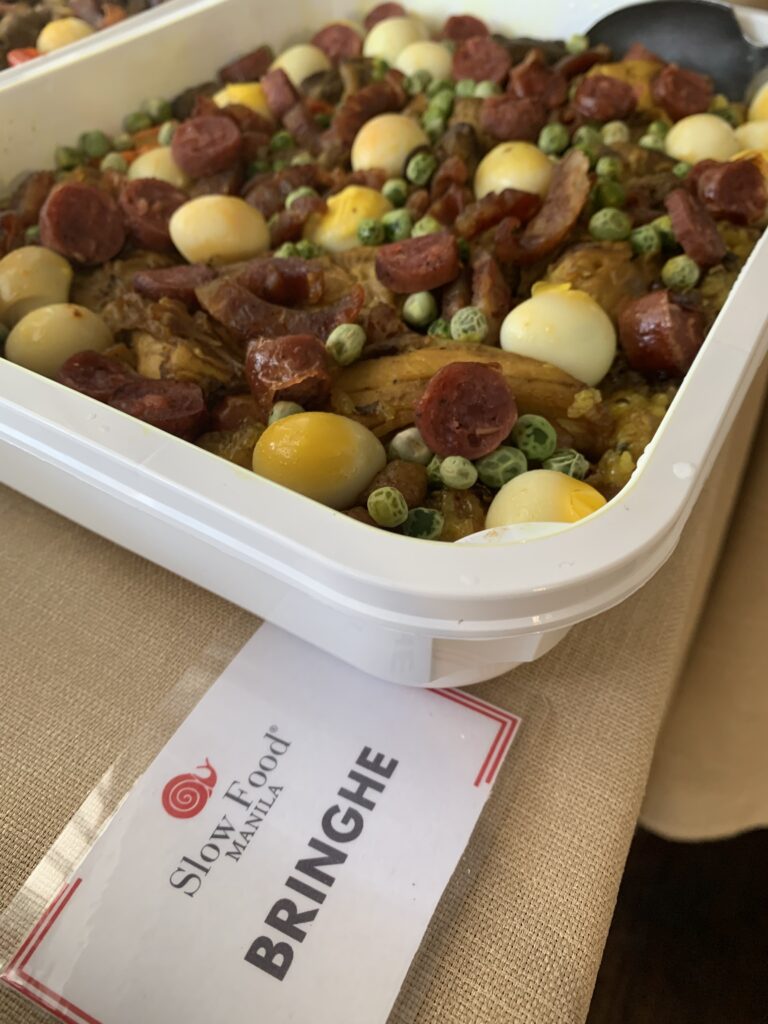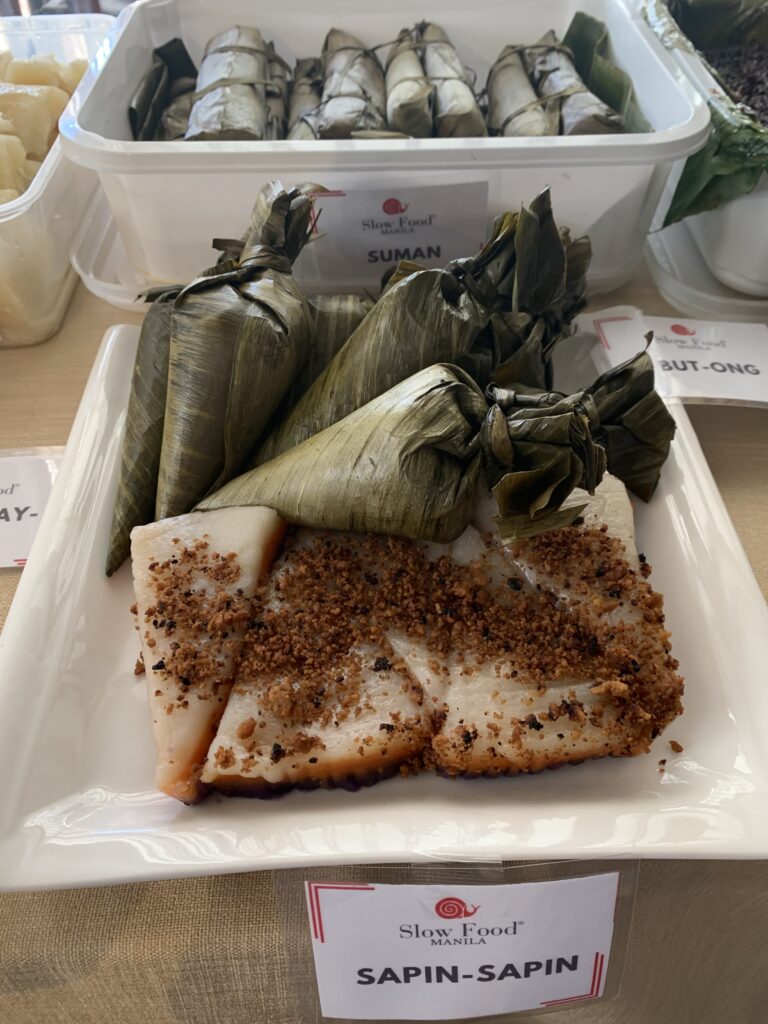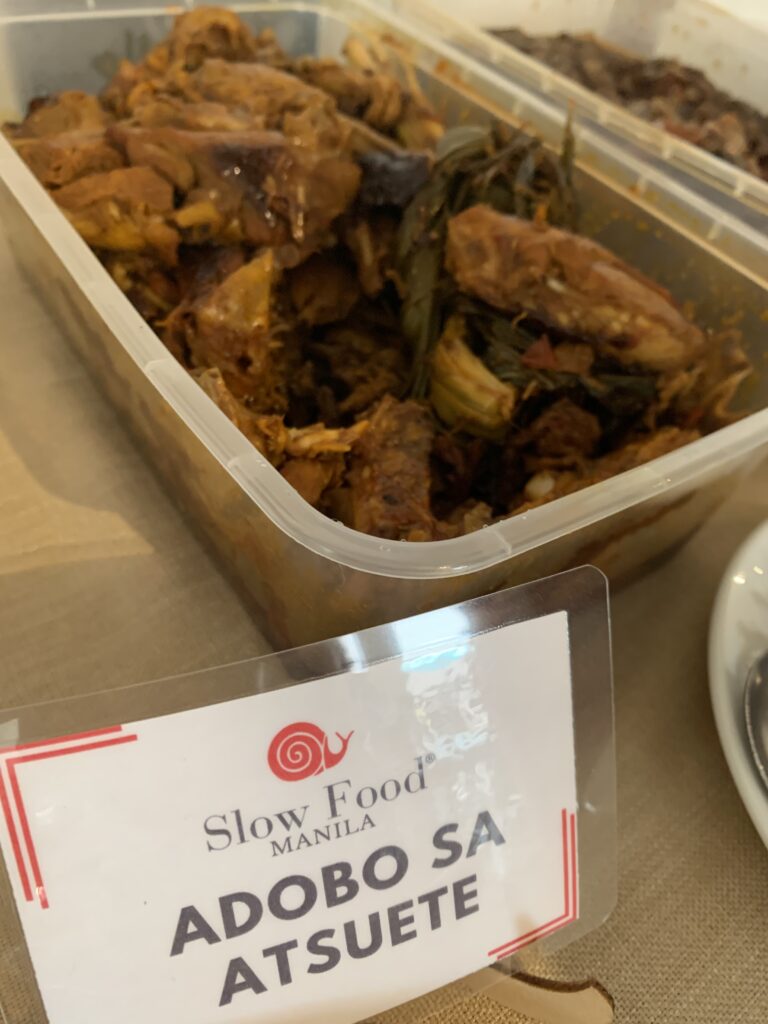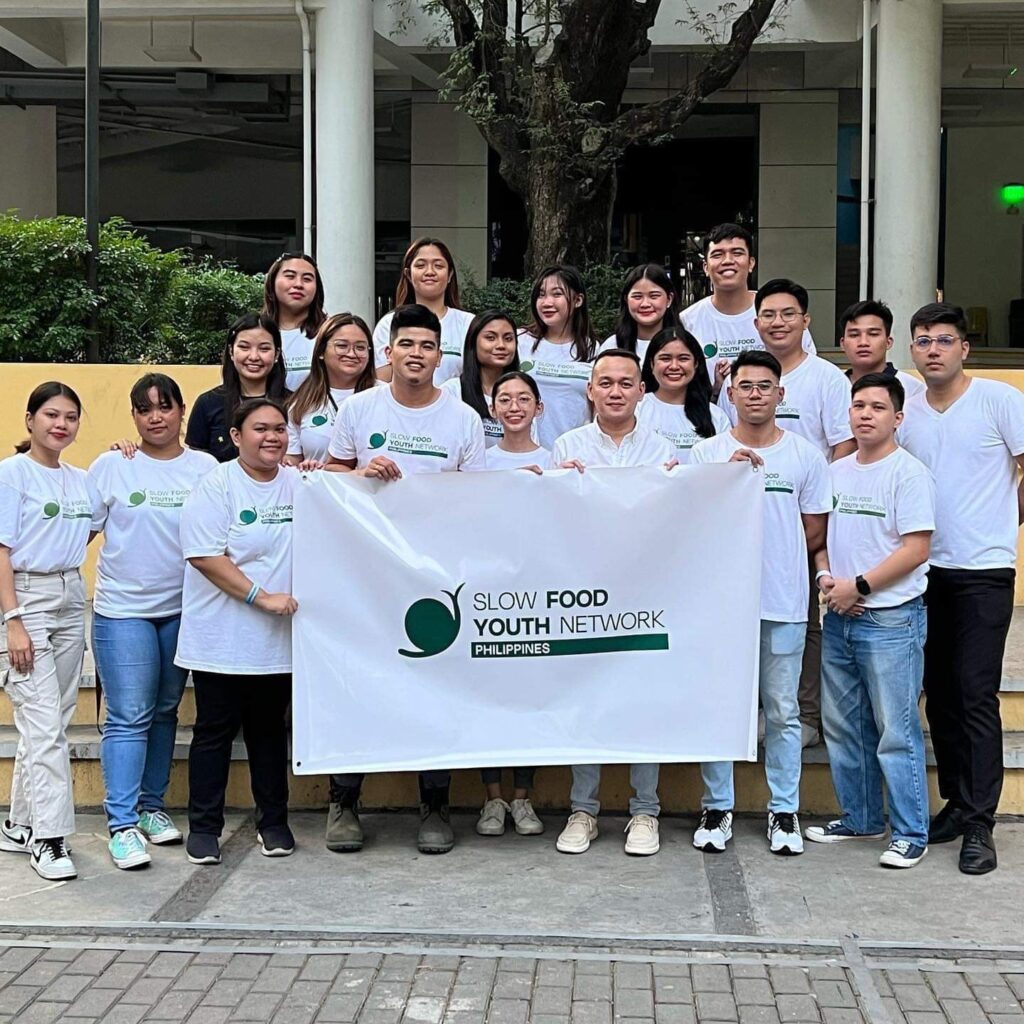At first glance, the dozen or so individuals who gathered on 10 December on the second floor of Commune Cafe+Bar in Makati City were having a typical Sunday buffet brunch. They helped themselves to some regular Pinoy fare, such as adobo sa atsuete, pan de sal, garlic fried rice, longganisa, suman, puto, palitaw and other kakanin (rice cakes). They also partook of the fiesta dishes Bringhe and Chicken Gallantina, while enjoying a few surprises, like a big tub of fresh kamias fruit and an interesting dish made of taro root tendrils called takway.
Then they started talking about how they each prepared the food they brought to the potluck get-together. It became clear that they were actually celebrating Terra Madre (Mother Earth) Day, an annual event observed by Slow Food communities in about 160 countries, including the Philippines. They came from different parts of the country where there are chapters of the movement that advocates producing or preparing food in accordance with local culinary traditions and use of locally sourced ingredients.
Among those who enthusiastically participated in discussions were longtime members Chit Juan, the founder of ECHOstore famed for promoting a sustainable lifestyle; and Jam Melchor, a chef who staunchly advocates preserving the Filipino culinary heritage.

They gladly shared with DAILY TRIBUNE, in an interview at the event, details and stories about what started as local protest movement in Italy in 1986 against the disappearance of local food traditions. Slow Food has since become a global movement that, as stated in its website, “fighting to ensure that everyone has access to good, clean and fair food.”
“Hindi lang ito (This is not just an) organization,” said Melchor, who hails from the epicurean province of Pampanga. “Our friendship has been built over the years na. Dami na naming pinagsamahan (We’ve been through a lot). Hindi lang sa (Not just during) get-togethers. Kasi kami (Because), we also influence the government, ’yung mga food policies ng government natin. Hindi namin kinakalaban ang (We’re not fighting the) government. We’re just suggesting.”
To promote the heirloom rice tinawon, for instance, the chef once used it in cooking Arroz Caldo in an event. He pointed out that tinawon, said to be the healthiest among all the varieties available in the market, is grown in the rice terraces in Ifugao province. So it’s not only high in nutritional value, but also rich in cultural heritage.

Juan, a social entrepreneur who also helped bring Slow Food in the Philippines in 2012, expressed pride and joy that they are able to send some farmers — or food producers, as they call them — to the biennial event in Italy called Terra Madre Salone del Gusto. “Para ma-meet nila na (So they’ll meet) around the world, meron pa palang kamukha nila (there are those like them) who are trying to preserve their culture. When they come home, they form their own community.”
She added, “So ang idea ngayon (now), ang Slow Food mag-form ng maraming (many) communities.” Her junior colleague Melchor, whom she invited to join the movement in 2013, began doing that in 2016 after attending the Terra Madre Salone del Gusto.
Melchor explained, “Kasi nakita ko, bawat bansa, may youth community. Ang Philippines lang ang wala. So pagbalik ko dito, lahat ng contemporary ko na puwede kong imbitahin dito sa lugar na ito. Nag-organize kami ng first meeting sa Commune (I saw that every country had a youth community, except the Philippines. So when I came home, I invited all my contemporaries in the movement to Commune for our first meeting).”




He went on telling how their youth network grew: “Nag-roll out kami sa iba-ibang (We went to different) schools—Enderun, Treston [International College], St. Scholastica, U.S.T. Last year, sa JRU. This coming 2024, sa FEU. Ang target namin sa youth, pumunta sa eskluwela. Kasi nando’n na ’yung mga bata. Di na sila ’yung pupunta kung saan ang event namin. Kami ang pupunta doon sa mga bata (Our target is to go straight to where the youth are, in their schools. They don’t have to go to where are events are held. We go to the kids).”
From there, the students themselves form their own communities. “Kanya-kanya nang activation. Di kami ’yung tipo ng organization na naga-attendance check. Basta pag nag-activate kami ng activity, basta na lang sila dadating lahat. Alam namin, and’yan sila (They themselves activate their communities. We’re don’t have an attendance check. If we have an activity, they automatically come).”
He noted that today’s generation of youth want to be get involved organizing and not just attending activities. “Nagugulat ako kasi ang schools mismo ang lumalapit sa amin. Gusto nilang mag-host ng KainCon. ’Yun kasi ang project namin annually, ng youth. KainCon means Kain Conference during Filipino Food Month ng April. So, nagugulat ako na sila pa ang nagri-reach out na makapag-host sa particular school (I’m surprised that the schools are the ones who approach us. They want to host our annual project called Kain Conference, or KainCon. They reach out to us to say that they want to host the conference).”
For the general public who wants to join Slow Food, Juan said they can visit Slow Food’s website, www.slowfood.com and also get in touch with Slow Food Manila through Facebook and Instagram accounts.
